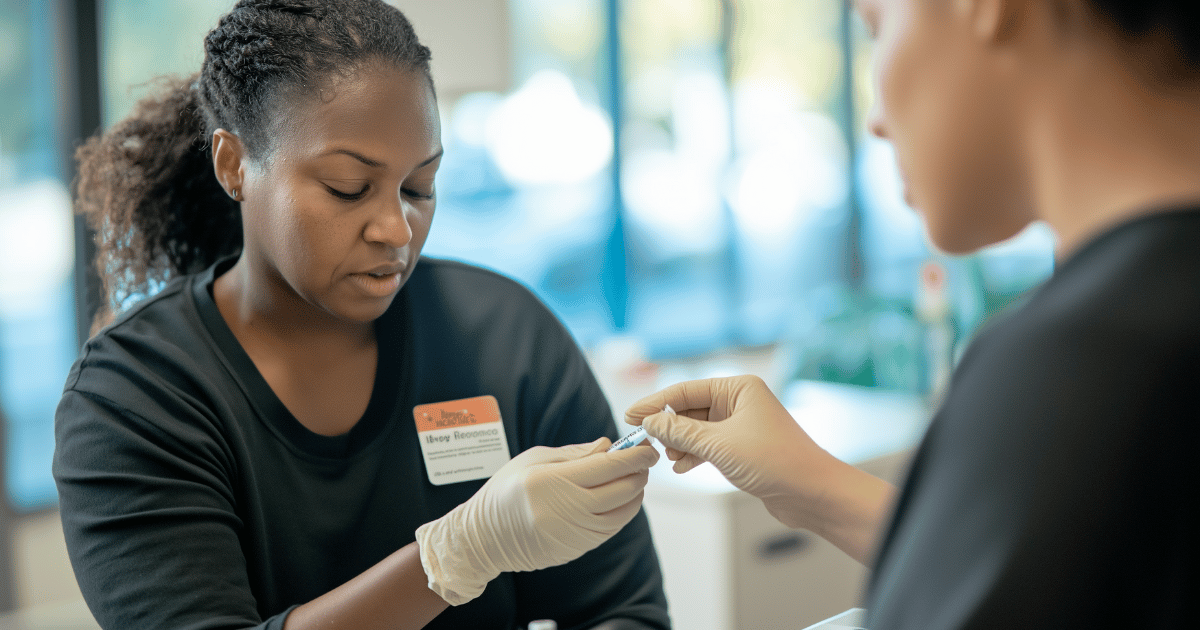Hepatitis C (Hep C) is a serious liver disease affecting millions worldwide. It comes from the hepatitis C virus, primarily transmitted through blood-to-blood contact.
For people who use recreational intravenous drugs, the risk of contracting Hep C is significantly increased. This is due to sharing needles and other equipment used for injecting drugs, which can be contaminated with the virus.
This is where harm reduction comes into play.
Research shows that harm reduction strategies are essential in preventing, testing, and treating hepatitis C. These strategies aim to reduce negative consequences without demanding abstinence. They also respect the dignity of individuals who use drugs.
However, many people aren’t aware of the many benefits harm reduction strategies have on substance use and hepatitis C. This blog post will explain how harm reduction works, its benefits, and why it is crucial for minimizing the risk of Hep C among drug users.
Understanding Harm Reduction

Harm reduction services are a social justice movement rooted in the acknowledgment and advocacy of the rights of individuals who use drugs. It adopts a pragmatic stance—one that recognizes the prevalence of drug use in society.
The harm reduction approach acknowledges the societal, legal, and health ramifications linked with drug use, advocating for policies that prioritize public health. It also doesn’t mandate individuals to cease their drug use, which can be seen as unrealistic.
Additionally, harm reduction plays a role in minimizing the adverse effects of substance use. It offers practical solutions to reduce hazards, such as providing clean needles and safe consumption spaces.
Why Harm Reduction Services Matter
Harm reduction strategies are crucial for people who use drugs because they provide a compassionate and non-judgmental environment. By focusing on reducing harm rather than demanding abstinence, these strategies help individuals seek help without fear of stigma or discrimination.
This approach improves public health outcomes by encouraging safer drug use practices and facilitating access to essential healthcare services. Harm reduction also helps reduce the spread of infectious diseases like Hep C by providing tools and education to minimize health risks.
The Role of Harm Reduction in Hep C Prevention
Intravenous drug users are at a higher risk of contracting Hep C due to practices like sharing needles and other drug paraphernalia, which can transmit the virus. This risk is compounded by limited access to healthcare and preventive measures.
Harm reduction strategies, such as needle exchange programs, play a crucial role in reducing this risk by providing clean equipment and educating users about safer practices. These facilities also often offer education on safer drug use practices and provide addiction treatment.
As a result, these programs have become essential to preventing new infections. Here are some of the characteristics of harm reduction strategies:
Needle Exchange Programs

Syringe services programs provide clean needles to people who use drugs. This significantly reduces the risk of hepatitis C transmission and other infections. Harm reduction services also offer a safe space for individuals to learn about safer drug use practices, access healthcare services, and receive support without judgment.
For example, the North American Syringe Exchange Network(NASEN) supports needle exchange programs across the United States, helping to reduce the spread of Hep C and other blood-borne diseases.
Safe Consumption Spaces
Safe consumption spaces are supervised facilities where people can use drugs in a controlled environment, with access to clean equipment and medical supervision. These spaces not only reduce the risk of overdoses and infections but also serve as a crucial point of contact for marginalized individuals who might otherwise avoid seeking medical help.
By offering sterile injection equipment, these facilities help to prevent the spread of infectious diseases such as HIV and Hepatitis C. Additionally, the presence of trained staff ensures that overdoses can be promptly addressed with interventions like naloxone administration, significantly reducing overdose deaths.
Beyond immediate health benefits, safe consumption spaces often provide access to social services, counseling, and pathways to addiction treatment. This fosters a holistic approach to harm reduction and public health.
Testing and Hep C Treatment

Screening for hepatitis C is essential for early detection. Harm reduction approaches often offer free or low-cost screening services. Early detection allows for timely treatment, which can prevent severe liver damage.
Harm reduction services also connect individuals with healthcare providers who specialize in Hep C treatment. This includes access to hepatitis doctors who can provide comprehensive care.
Challenges and Future Directions
Harm reduction is crucial because it is based on human rights principles. It respects the autonomy and dignity of individuals who use drugs.
But despite the success of harm reduction strategies, challenges remain. Stigma, lack of funding, and restrictive policies can hinder the effectiveness of these programs. Addressing these challenges and continuing to advocate for harm reduction services is essential.
- Overcoming Stigma: Reducing stigma is crucial for the success of harm reduction strategies. Public education campaigns and advocacy can help change public perceptions and promote a more compassionate approach to drug use.
- Increasing Funding: Harm reduction programs often face funding challenges. Increasing funding and resources for these programs is essential for expanding their reach and effectiveness.
- Policy Changes: Supportive policies in health and social services are needed to ensure the success of harm reduction strategies. This includes policies that decriminalize drug use and support harm reduction initiatives.
Hep-C Harm Reduction Strategies Conclusion
Harm reduction strategies are essential for preventing, testing, and treating Hep C among people who are engaged in substance use.
It’s crucial that we continue advocating for harm reduction and supporting programs that promote health and dignity for all. If you or someone you know is at risk for Hepatitis C, consider seeking out harm reduction services in your area.
Want to learn more about Hep C treatment? Connect to Cure can help. Our team is dedicated to educating, testing, and treating individuals for Hepatitis C.
Reach out to us today to take control of your health.


